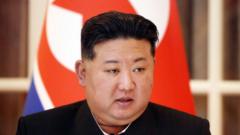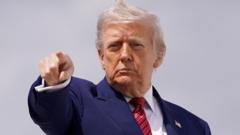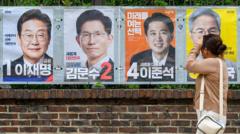With the recent turbulent political landscape and the removal of President Yoon Suk Yeol, South Korea's upcoming presidential election is among the most consequential in years, addressing key issues such as economic challenges, national security, and the declining birth rate.
South Korea Prepares for Critical Snap Presidential Election

South Korea Prepares for Critical Snap Presidential Election
As South Korea faces a major political transition, citizens head to the polls on June 3.
Following months of political unrest, South Korea is gearing up for a snap presidential election scheduled for June 3. This decisive vote comes on the heels of Yoon Suk Yeol's unprecedented ousting from office over his declaration of martial law, which provoked widespread protests and paved the way for new leadership amidst ongoing tensions with North Korea and strained relations with China.
Yoon's term was abruptly cut short after his controversial actions on December 3, 2022, led to his impeachment by parliamentary vote just a week later, a decision upheld by the constitutional court four months thereafter. Since then, the country has been led by a succession of acting presidents, leaving citizens eager for stability as the election approaches.
Key issues on the table include the economic repercussions of Yoon's martial law, trade relationships impacted by evolving global tariffs, and the ongoing, precarious stance South Korea must maintain regarding North Korea's threats. The next president will also grapple with a declining birthrate, currently among the lowest in the world at 0.75, necessitating urgent action.
The political race features prominent candidates, including frontrunner Lee Jae-myung from the opposition Democratic Party, who has positioned himself as a champion for the working class. He narrowly lost to Yoon in 2022 and has vowed to improve job opportunities and create a fairer society. His main rival, Kim Moon-soo from the ruling People Power Party, emphasizes economic growth and a favorable business climate.
For the first time in nearly two decades, the election will occur without any female candidates on the ticket, despite women's historical involvement in South Korean politics.
Voting will take place on June 3 from 6 AM to 8 PM local time, with results expected shortly thereafter. Given the razor-thin victory margins of past elections, the outcome will be closely contested and pivotal for the nation.
Notably, former President Yoon is currently facing legal repercussions for his actions while in office, including an insurrection charge, marking the gravity of political accountability in South Korea.
As South Korea approaches this critical election, the next president will not only inherit a nation divided by political turmoil but also the responsibility of navigating significant economic and geopolitical challenges that lie ahead.





















